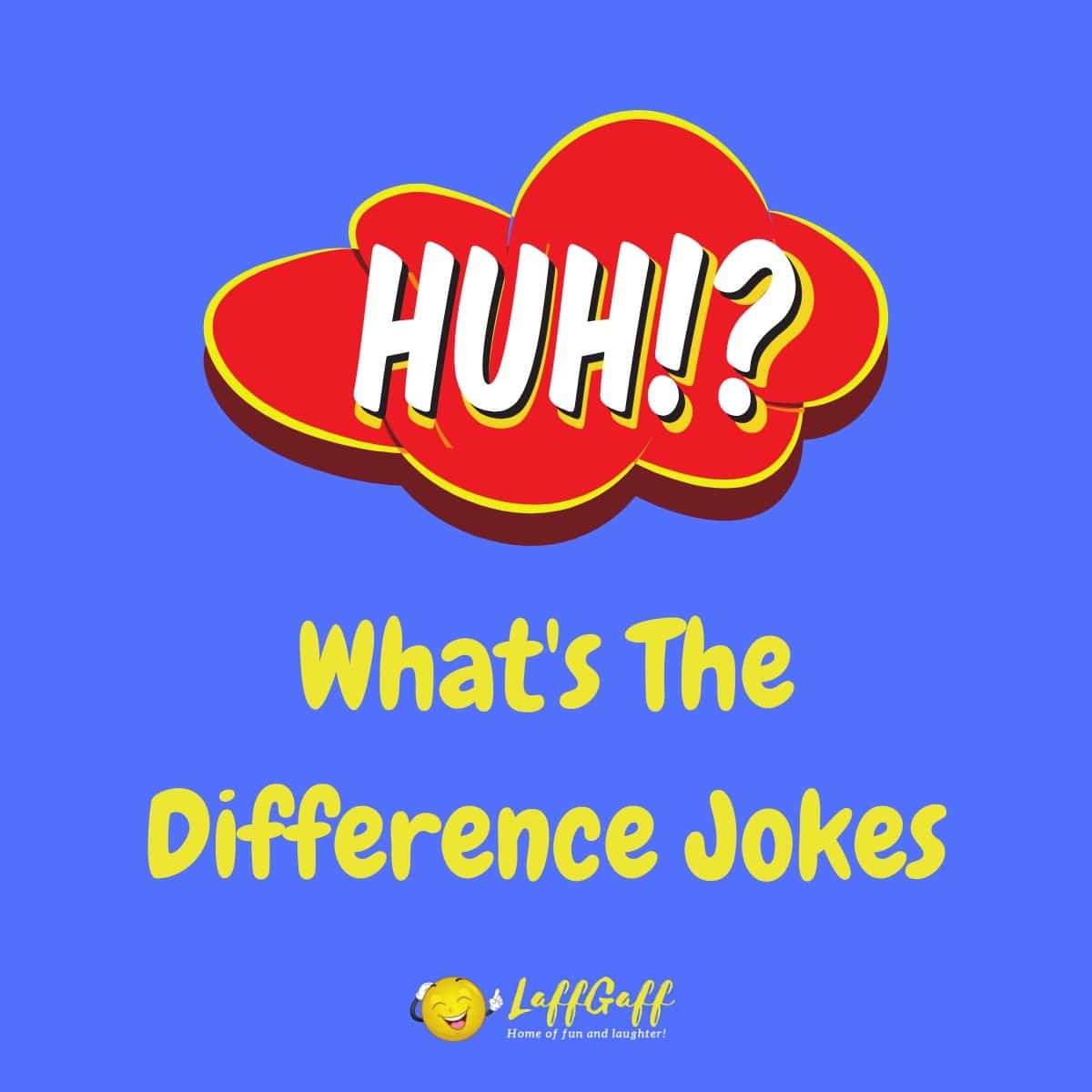Understanding The Nuances: What's The Difference Between Jokes?
Humor is an intricate part of human interaction, and jokes play a significant role in how we connect with one another. However, not all jokes are created equal. Understanding the differences between various types of jokes can enrich our appreciation for humor and improve our comedic timing. From puns to one-liners, the world of jokes is diverse and colorful, each type serving a unique purpose in the realm of comedy. As we explore the many forms of humor, we will uncover the subtle yet important distinctions that set them apart. This understanding not only enhances our comedic repertoire but also allows us to engage more meaningfully in social situations.
In this article, we will delve into the question of what's the difference between jokes, examining the characteristics, structures, and cultural contexts that define each type. We will also discuss how timing, delivery, and audience perception play crucial roles in how jokes are received. So, whether you're an aspiring comedian or just someone looking to lighten the mood, this guide to the different types of jokes will provide you with valuable insights.
Join us as we embark on this humorous journey, where we will compare and contrast different styles of jokes, allowing you to understand what makes each type special. By the end of this article, you'll be equipped with the knowledge to not only appreciate jokes on a deeper level but also craft your own unique humor.
What Are the Main Types of Jokes?
When we think about the differences between jokes, it's essential to categorize them into main types. Here are some of the primary categories:
- Puns: Play on words that exploit multiple meanings.
- One-liners: Short jokes that deliver a punchline quickly.
- Observational humor: Jokes based on everyday life and common experiences.
- Knock-knock jokes: Call-and-response jokes that follow a specific format.
- Dark humor: Jokes that find comedy in serious or taboo subjects.
How Do Puns Differ from Other Types of Jokes?
Puns are often considered the highest form of wit, relying on wordplay and double meanings. Unlike observational humor or one-liners, which may rely more on timing and delivery, puns are often more cerebral, requiring the audience to think about the implications of the words used. Here are some examples of puns:
- Time flies like an arrow; fruit flies like a banana.
- I used to be a baker, but I couldn't make enough dough.
Why Are One-Liners So Popular?
One-liners have gained immense popularity in stand-up comedy due to their brevity and punchiness. The key to a successful one-liner is its ability to deliver a quick surprise or twist, often leaving the audience laughing before they even have time to process the joke. Comedians like Steven Wright and Mitch Hedberg are famous for their clever one-liners. Here's an example:
- I told my wife she was drawing her eyebrows too high. She looked surprised.
What Makes Observational Humor Unique?
Observational humor is based on the mundane aspects of everyday life. It resonates with audiences because it highlights shared experiences and common frustrations. Comedians like Jerry Seinfeld have mastered this style, creating relatable content that encourages laughter through recognition. For example:
- Have you ever noticed that the size of the pizza box is bigger than the pizza itself?
What Are Knock-Knock Jokes and Their Appeal?
Knock-knock jokes are a classic form of humor, especially among children. They follow a specific structure that involves a call-and-response format, making them interactive and engaging. Their simplicity and playfulness make them appealing to both kids and adults alike. Here's a classic example:
- Knock, knock. Who’s there? Lettuce. Lettuce who? Lettuce in, it’s freezing out here!
How Does Dark Humor Differ From Other Jokes?
Dark humor often tackles serious or taboo subjects, pushing the boundaries of traditional comedy. While it can be polarizing, it serves as a coping mechanism for some, allowing them to laugh in the face of adversity. The key to successful dark humor lies in the delivery and the audience's willingness to engage with uncomfortable topics. Here's an example:
- I have a joke about trickle-down economics, but 99% of you will never get it.
Can Cultural Context Influence Jokes?
When considering what's the difference between jokes, cultural context plays a significant role. Different societies have varying norms and values, which can shape the type of humor that is acceptable or funny. A joke that resonates in one culture might be considered offensive or confusing in another. Understanding cultural nuances is crucial for comedians who perform internationally.
How Does Timing Affect the Reception of Jokes?
Timing is everything in comedy. The delivery of a joke, including pauses and intonation, can significantly impact how it's received. A well-timed punchline can turn an average joke into a comedic masterpiece, while poor timing can leave an audience in awkward silence. Comedians often practice their timing meticulously to ensure their jokes land effectively.
What Role Does Audience Perception Play?
The audience's perception is critical in determining how a joke is received. Factors such as age, cultural background, and personal experiences can all influence whether a joke is found funny or offensive. Comedians must be attuned to their audience and tailor their material accordingly to create a successful performance.
Conclusion: Embracing the Diversity of Jokes
In summary, understanding what's the difference between jokes enriches our comedic experience. By appreciating the various styles and nuances, we become more adept at both telling and enjoying humor. Whether you prefer puns, one-liners, or observational humor, there's a type of joke for everyone. So the next time you find yourself in a humorous situation, take a moment to consider the type of joke being told and how it resonates with you and those around you.
Unveiling The Life Of Jackson William Murray
Simone Biles' Dream Wedding: A Celebration Of Love And Triumph
Chasing The Northern Lights In Oregon: A Celestial Dance


